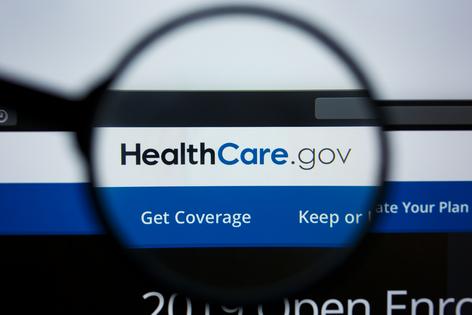Over 162,000 Dreamers cut off from Affordable Care Act insurance
Published in Health & Fitness
BBarely a month after gaining access to Affordable Care Act coverage for the first time, millions of Dreamers across 19 states were barred from getting health insurance.
A North Dakota federal judge’s ruling prevents Deferred Action for Childhood Arrivals (DACA) immigrants in Kansas, along with 18 other states including Florida, from purchasing health insurance from the federal marketplace. The temporary order could impact over 162,000 Dreamers in those states, and as many as 87,620 in Texas alone.
Last week, U.S. District Judge Daniel M. Traynor issued the ruling, which prohibits the Centers for Medicare and Medicaid Services (CMS) from enforcing the Biden administration’s final rule allowing DACA recipients and other lawfully present immigrants access to the ACA marketplace, also known as “Obamacare.”
The development comes as 2025 open enrollment is underway. Since this is the first year Dreamers were eligible for ACA coverage, they’ve had access to purchase marketplace health insurance since November.
Not to mention, several key provisions of the ACA, including subsidies like the premium tax credit are set to expire by the end of 2025 unless Congress acts.
In the meantime, here’s what you need to know about who cannot apply for ACA healthcare during the 2025 open enrollment season.
19 states block DACA recipients from ACA coverage
Nineteen states challenged the Biden administration’s new guidance which allows DACA recipients to enroll in Affordable Care Act health insurance plans. Previously, federal guidance didn’t recognize Dreamers as “lawfully present” individuals.
The states argue that the previous ruling was “done for good reason” as it would discourage illegal immigration and prevent Dreamers from draining taxpayer resources.
In court documents, U.S. District Judge Traynor ruled that the Centers for Medicare & Medicaid Services (CMS) doesn’t have the authority to “circumvent congressional authority and redefine the term ‘lawfully present’.”
In response, a CMS spokesperson said the agency is reviewing the court’s decision but declined to comment, the Hill first reported.
“Illegal aliens shouldn’t get a free pass into our country,” Kansas Attorney General Kris Kobach, who joined the multi-state lawsuit, said. “They shouldn’t receive taxpayer benefits when they arrive, and the Biden-Harris administration shouldn't get a free pass to violate federal law.”
The comments were made even as studies show DACA recipients have positively contributed to the economy: having earned as much as $108 billion in wages within the first decade of the policy, contributed $20 billion in federal and payroll taxes, and an additional $13 billion in state and local taxes.
According to U.S. Citizenship and Immigration Services and court documents, these are the states and share of DACA recipients that no longer have access to the Affordable Care Act coverage: Alabama (3,460), Arkansas (3,680), Florida (21,080), Idaho (2,250), Indiana (7,450), Iowa (2,010), Kansas (4,350), Kentucky (2,230), Missouri (2,550), Montana (80), Nebraska (2,420), New Hampshire (220), North Dakota (130), Ohio (3,290), South Carolina (4,840), South Dakota (190), Tennessee (6,360), and Texas (87,620).
Other states remain untouched
As of Nov. 1, 2024, DACA recipients and lawfully present immigrants can apply for private health insurance plans under the Affordable Care Act’s marketplace, like HealthCare.gov.
However, this situation is subject to ongoing litigation, so the status may change as legal proceedings continue.
(Gabriella Cruz-Martínez is a tax writer for Kiplinger.com.)
©2024 The Kiplinger Washington Editors, Inc. All rights reserved. Distributed by Tribune Content Agency, LLC.










Comments